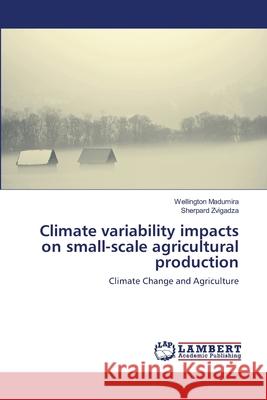Climate variability impacts on small-scale agricultural production » książka
Climate variability impacts on small-scale agricultural production
ISBN-13: 9786139579006 / Angielski / Miękka / 2018 / 52 str.
Climate change presents high vulnerability to food & nutrition security in Zimbabwe's agro-based economy. Up to 70% of the total population reside in rural areas and rely on rain-fed farming. The sector also provides up to 15% of national GDP and 60 % of raw materials required by the manufacturing industry and accounts for 40% of total export earnings.There is strong and direct positive correlation between agricultural performance and overall economic growth. Climate variability and frequency of extreme weather events are linked with economic growth, due to the climate-sensitive nature of the agricultural sector. The sector provides livelihoods for up to 80% of rural population thereby presenting an opportunity to eradicate poverty. The rising temperatures and increasing interannual rainfall variability and climate extremes such as drought & floods exacerbate the declining agricultural production, further compromising economic growth and stability, unemployment levels, food & livelihoods insecurity. In Zimbabwe, economic activities of the majority population are strongly linked to rain-fed agriculture & natural resources for income, employment and safety nets (Mugabe et al., 2012).











